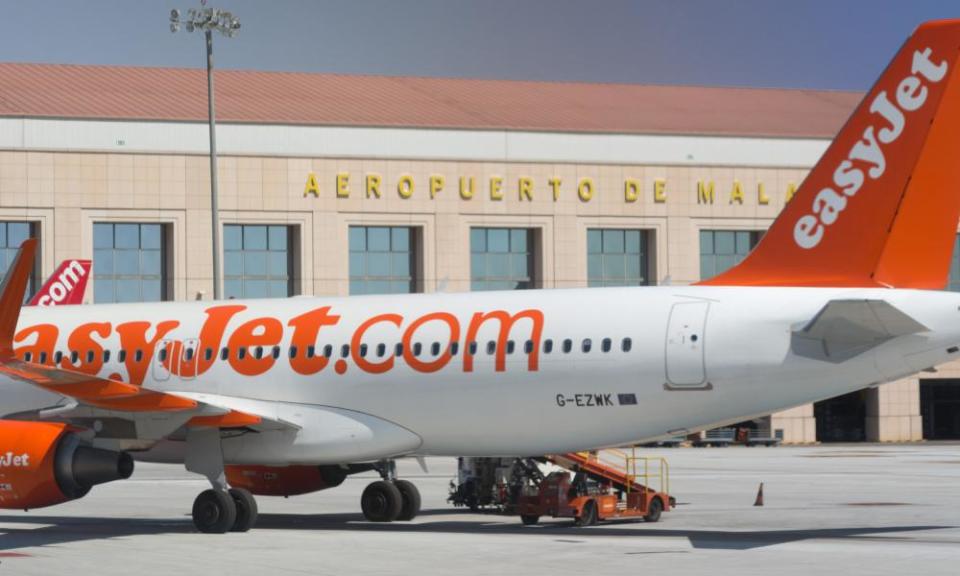Airport slot ‘amnesty’ announced as easyJet cuts flights and strikes threatened

The government has announced an “amnesty” on airport slot rules, making it easier for struggling airlines to plan schedules with fewer flights, as fresh strikes at easyJet threaten to add to a summer of disruption for passengers.
Airlines normally have to use allocated takeoff and landing slots at the busiest airports, such as London Heathrow and Gatwick, at least 70% of the time or risk forfeiting a valuable asset.
With many carriers unable to recruit enough ground staff, flights have been cancelled at short notice. The government said airlines could now hand back slots that they were not confident they could operate.
Grant Shapps, the transport secretary, said the move was intended to “help airlines provide certainty to passengers and ensure the next few months are as smooth as possible”.
It came as news of a planned walkout by the Spanish USO union piled further trouble on the biggest UK carrier, easyJet, which had announced on Monday it would be cutting an estimated 11,000 flights from its summer schedules. The reduction came after caps were placed on flights by Gatwick, where much of easyJet’s operation is based, as well as at Amsterdam’s Schiphol airport.
The USO union is looking for a 40% pay rise in low-paid cabin staff’s basic wage. The strikes, three 72-hour stoppages at fortnightly intervals from 1 July, would mean hundreds of crew stop work at easyJet’s bases in Barcelona, Málaga and Palma.
Related: ‘Baggage mountain’ leads to Heathrow cancellations, as easyJet cuts schedule
An easyJet spokesperson said: “We are extremely disappointed with this action as we have made considerable progress towards a new collective labour agreement and so would like to continue a constructive dialogue with them.
“Should the industrial action go ahead there could be some disruption to our flying programme to and from Málaga, Palma and Barcelona during the strike period but at this stage, easyJet plans to operate its full schedule and we would like to reassure customers that we will do everything possible to minimise any disruption.”
The union said it remained open to talks. USO members working as crew for Ryanair have also voted to strike and plan two three-day stoppages in the coming weeks.
The Ryanair chief executive, Michael O’Leary, said passengers should expect wider disruption to persist through peak season, because of shortages of airport staff across air traffic control, baggage handling and security.
He told Sky News: “This problem is going to continue particularly at airports like Gatwick and Heathrow right throughout the summer. It will be worse at weekends and better during the week.”
EasyJet said it was starting to tell customers today whose flights were affected by the reduction in its schedules, and that most would be rebooked on an alternative departure within 24 hours. It expects to inform most customers of any changes this week, a spokesperson said, with the majority of UK changes affecting those booked at Gatwick.
Meanwhile, the airline said it was taking up options to buy 56 A320neo family planes from Airbus, to modernise the fleet. The planes, to arrive between 2026 and 2028, will have more seats and use less fuel, and the airline has paid an undisclosed price said to be “substantially lower” than the official $6.5bn (£5.3bn) value.

 Yahoo Finance
Yahoo Finance 